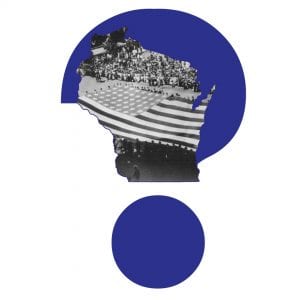Written by Kevin Hampton, Curator of History
This time of year, with patriotic holidays like Memorial Day, the anniversary of D-Day, Flag Day, Juneteenth, and the 4th of July, there is always a natural focus on the American historical identity. This interest usually comes in the form of a passive reflection on deeds done and sacrifices made to create the nation we live in today.
The idea of examining American history has been on the minds of many Americans these past several months; not in the form of a passive reflection, but rather in an active, living sense as events unfold. There has been a renewed spark and interest in how we remember, preserve, and memorialize our history. As this spark grows, it’s easy to fall back on the traditional trap of what it means to understand history. Too often “history” is seen as irrefutable fact to “prove a point” or to quench the abiding need to “be right.”
The broadest understanding of what history is to most people comes from the way we learned it growing up—studying dates, names, and places only to regurgitate them for a test at a later date. You can all hear that voice in your head right now, “Is this going to be on the test?” We were taught that history is passive—after all, it’s in the past, right? We grew up understanding that “history” is fact, undeniable and irrefutable, because we know it happened.

Image in Graphic: Huge flag being carried by a large group of men in a G.A.R. parade in Washington, D.C. 1915, Library of Congress, LOT 12354-4.
What it actually means to understand history is quite the opposite. History isn’t passive—it’s active; it’s now; it’s living and unfolding every single day. Studying history, likewise, isn’t a passive pursuit. It’s constantly changing, continuously evolving, and always calling for renewed investigation. Too often we consider history to be “what” when, in reality, history is “how” and “why.”
Likewise, history professionals are often seen as a source of facts and instruction. Realistically, we do not have an obligation to instruct; we have an obligation to provide. We provide opportunities to better understand the “how” and “why” of not just events in the past, but of ourselves and our society, here and now. We provide a chance to lift us up from the common denominator of “just tell me what happened” and to instead elevate polarizing vitriol to respectful discourse and dialogue that promotes understanding.
When I was thinking about pursing history as a career, a friend of mine asked, “Why do you like dwelling on the past?” That moment has stuck with me my entire life. At the time I didn’t really understand why I felt such a calling to study history, but something deep inside me just knew that it was important—not to memorize the dates and facts, but that somewhere there was a deeper need to understand. That friend’s voice has been echoing in my mind these last several months. Invariably, I knew somehow that history would be relegated again to the perception that it is something that we have to hold on to with a firm grasp because it’s a fixed fact.
The truth of what a historian does is so much more than that. We are not called to dwell on fact; we are called to learn. We are not called to repeat; we are called to improve. We are not called to inform; we are called to provoke a desire to look deeper. We are not called to react; we are called to understand. We are not called regurgitate; we are called to analyze. We are not called to lecture; we are called to promote dialogue and discourse. After all, to understand history is to understand people. History is compassion. History is patience. History is a desire to know more and understand. History is an exercise in empathy. They don’t call it the “humanities” for nothing.
Historical institutions, like the Wisconsin Veterans Museum, have not just the opportunity, but the responsibility to refocus our societal understanding of history. Now is the time to show that history is engaging and active. Now is the time to remind us all of the power of discourse and respectful dialogue incorporating multiple perspectives. Now is the time to promote an understanding that we’re not just meant to learn from our past; we are meant to build a better future together. After all, isn’t that what all these patriotic holidays are really all about in the first place? Can we really disconnect our appreciation for deeds done and sacrifices made from the question “what was it all for?” The lesson of these historical events, both in the past and in the present, is that we are all human—with our own virtues and vices—and that together we can achieve a better tomorrow. That point, in the end, is the greatest value of historical study.

